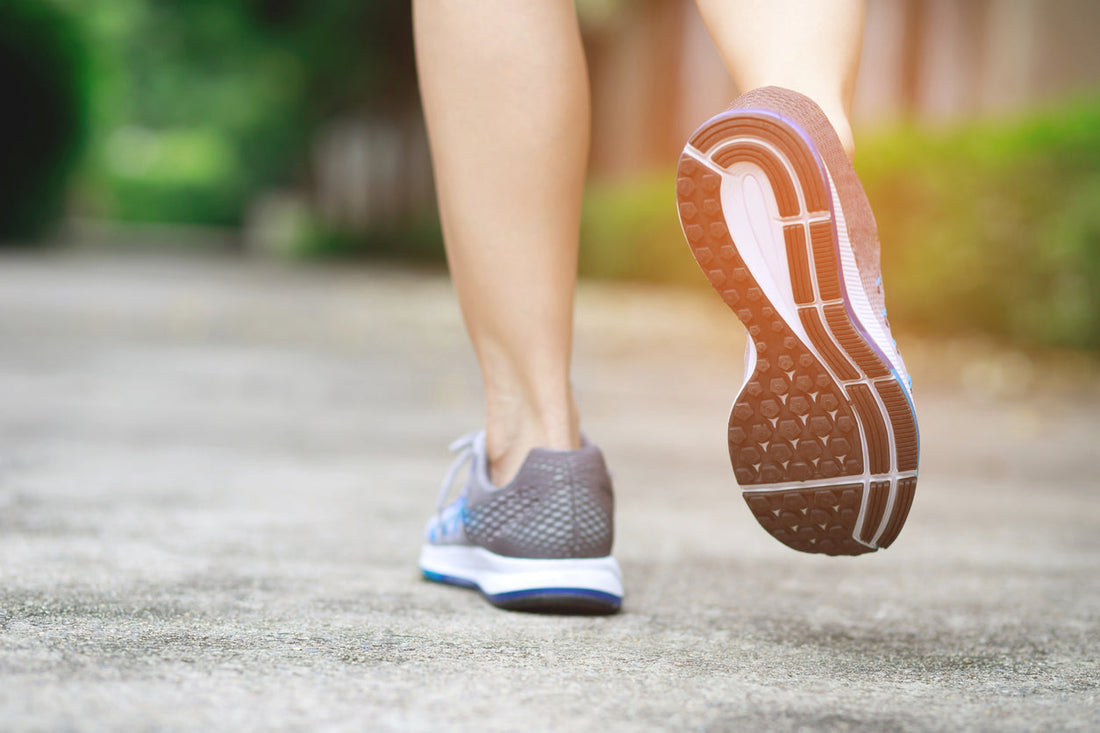
good running shoes for plantar fasciitis
Share
Understanding Plantar Fasciitis
Before diving into shoe recommendations, it's important to understand what plantar fasciitis is and how it affects your feet. The plantar fascia is a thick band of tissue that runs across the bottom of your foot, connecting your heel bone to your toes. Its main role is to support the arch of your foot and absorb shock when you walk or run.
Causes and Symptoms
Plantar fasciitis is commonly caused by repetitive stress on the foot, which can lead to small tears in the fascia. This stress can come from a variety of sources, including:
- Overpronation (feet rolling inward excessively)
- Flat feet or high arches
- Tight calf muscles
- Wearing unsupportive shoes
- Running on hard surfaces
Symptoms of plantar fasciitis typically include heel pain, especially in the morning or after long periods of rest. The pain usually decreases as you move around, but can return after standing for long periods or after exercise.
Features of Good Running Shoes for Plantar Fasciitis
When it comes to choosing running shoes for plantar fasciitis, there are several key features to consider. These features help provide the necessary support and cushioning to reduce pain and prevent further injury.
Arch Support
Arch support is one of the most important features to look for in running shoes for plantar fasciitis. Proper arch support helps distribute pressure evenly across your foot, reducing stress on the plantar fascia. Look for shoes with built-in arch support or removable insoles that allow for custom orthotics.
Cushioning
Cushioned running shoes provide the comfort needed to absorb shock and reduce impact on your feet. This is especially important for runners with plantar fasciitis, as it helps minimize pain during runs. Look for shoes with ample cushioning in the heel and forefoot areas.
Heel Support
Since plantar fasciitis pain is often concentrated in the heel, good heel support is crucial. A firm heel counter, which is the part of the shoe that wraps around your heel, helps keep your foot stable and reduces excessive movement that can aggravate the condition.
Flexibility and Stability
A balance between flexibility and stability is essential for running shoes. The shoe should be flexible enough to allow natural foot movement, but stable enough to prevent overpronation and provide proper support. Check for shoes with a supportive midsole and a flexible forefoot.
Best Running Shoes for Plantar Fasciitis
Now that you know what features to look for, let's explore some of the best running shoes for plantar fasciitis available on the market. These shoes are highly recommended by runners and podiatrists for their comfort and support.
1. Gravity Defyer Mighty Walk
Best Overall
The Mighty Walk is renowned for its exceptional shock absorption and arch support, thanks to the VersoShock® technology. It's designed to alleviate pain from plantar fasciitis, making it a top choice for daily runners.
2. Gravity Defyer XLR8
Best for High Impact
With a sturdy build and VersoCloud® multi-density sole, the XLR8 is ideal for runners who engage in high-impact activities. It offers excellent cushioning and a front rolling design to reduce foot stress.
3. Gravity Defyer Ion
Lightweight Design
The Ion model combines a lightweight structure with strong heel and arch support, making it suitable for runners seeking a balance between comfort and performance.
4. Gravity Defyer Energiya
Stylish Option
Energiya offers a sleek design without compromising on support. It's equipped with the necessary features to assist those with plantar fasciitis while maintaining a fashionable appearance.
5. Gravity Defyer MATeeM
Budget-Friendly
For those looking for an affordable option, the MATeeM provides essential support and comfort, making it a practical choice for managing plantar fasciitis symptoms.Tips for Managing Plantar Fasciitis
While choosing the right shoes is a significant step towards managing plantar fasciitis, there are additional measures you can take to alleviate pain and promote healing.
Stretching and Strengthening Exercises
Incorporate stretching and strengthening exercises into your routine to improve flexibility and strength in your feet and calves. Stretching the plantar fascia, Achilles tendon, and calf muscles can help reduce tension and prevent further injury.
Rest and Ice
If you experience a flare-up, rest is crucial. Avoid activities that put excessive strain on your feet, and apply ice to the affected area to reduce inflammation and pain.
Orthotic Inserts
Consider using orthotic inserts for additional support. Custom orthotics or over-the-counter inserts can provide extra cushioning and arch support, further relieving pressure on the plantar fascia.
Conclusion
Finding the right running shoes for plantar fasciitis can make a significant difference in managing pain and maintaining your running routine. Focus on shoes that offer excellent arch support, cushioning, and stability to protect your feet and minimize discomfort. By combining the right footwear with proper self-care and exercises, you can keep plantar fasciitis at bay and continue to enjoy your runs.
Remember, every runner's feet are unique, so it may take some trial and error to find the perfect pair of shoes for you. Don't hesitate to consult with a podiatrist or footwear specialist for personalized recommendations. Happy running!








